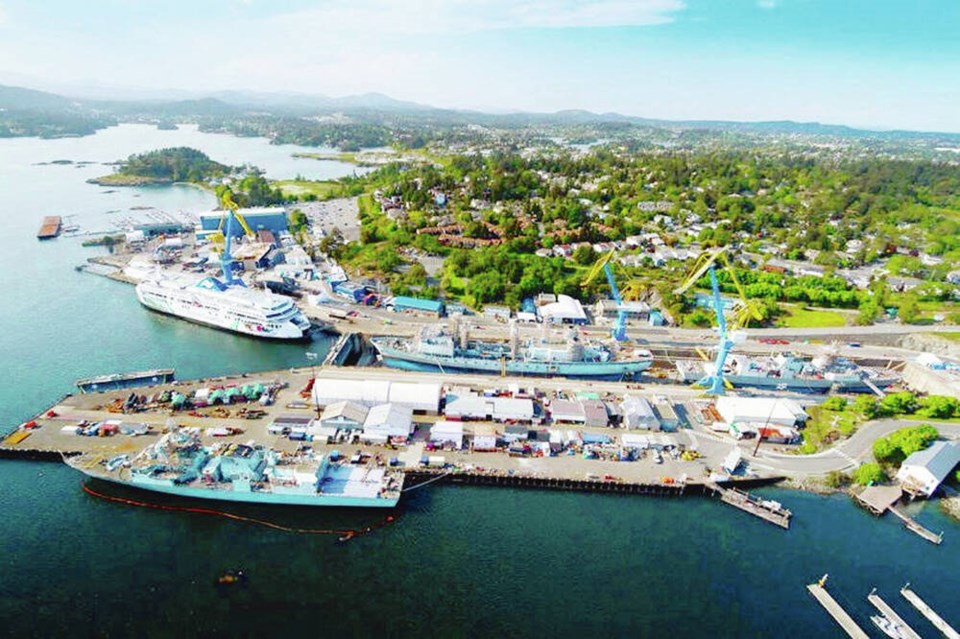B.C. Ferries is investigating the idea of awarding multimillion-dollar contracts of up to 10 years to B.C. shipyards, booking blocks of time in drydock for refits and repairs.
“Not only is this more cost-effective, but it means we can get our ships back in the water faster, reducing any impact this work has on our ability to provide service for our customers,” company spokesman Jeff Groot said.
The company is looking at awarding contracts called master services agreements to more than one company starting in the second quarter of this year.
Vessels would be bundled into two or more groups for companies to bid on.
The estimated contracted cost of drydocking ferries over the next five years is $14.5 million, B.C. Ferries said.
The company has published a request for expressions of interest to provide drydock services, an opportunity that closes March 25. The goal is to test market interest, identify companies able to handle the work, and learn what drydocks are available and how they could accommodate ferries.
B.C. Ferries requires drydocking for routine maintenance or refits, which are planned on a 10-year schedule. It also needs access to a drydock when emergencies arise.
The company typically awards individual contracts for specific vessels needing to go into drydock, but about five years ago it bundled seven vessels to Point Hope Maritime.
“One of the challenges with our historical approach is that we are not booked in with specific shipyards until a few months before our required dates and have limited influence and commitment to our planned refit dates with the shipyards,” Groot said.
If a refit schedule needs to be changed or unplanned repairs are needed, then B.C. Ferries is “often constrained by the availability of drydock space and the shipyard’s other previous commitments,” he said.
By establishing a long-term agreement with one or more shipyards, the company anticipates finding more flexibility on scheduling refits and repair, Groot said.
A drydock is like a giant bathtub for vessels, which are floated in and put on supports. The water is drained out, allowing workers access to the entire ship.
B.C. drydocks include the huge Esquimalt Graving Dock, owned by the federal government, which rents it to various companies wanting to use the facility.
Vancouver Shipyards, a privately owned facility part of the Washington Group of companies, owns a large drydock in North Vancouver. Allied Shipbuilders Ltd. in North Vancouver has two floating drydocks.
>>> To comment on this article, write a letter to the editor: [email protected]



